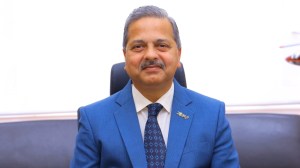More T20 leagues: Cricket is embracing its economic reality
Two countries, effectively a quarter of world cricket remember, broke with tradition and embraced a new reality this week.

Two countries, effectively a quarter of world cricket remember, broke with tradition and embraced a new reality this week. It wasn’t surprising. The wind rarely keeps its direction a secret. England and Sri Lanka moved towards a new world; a tumultuous, uncertain world at the moment (almost as uncertain as the grammar in this paragraph!) but one which leads towards the biggest revolution since Kerry Packer. Again, money is at the centre of it all. The world must move and change must be constant and often, it is commerce that shows the way ahead.
Cricket runs the risk of being mired in squabbles. That is inevitable when there is a decently large pie and everyone’s interests have to be protected. A sport like football can exist without Brazil, or Germany, or Italy or England. But cricket is too small and the only way to ensure that family quarrels do not derail the sport is to ensure that there are many more than the pitiable number of teams playing the game today. That is why a franchise driven system, with more localised loyalties is so critical to the future of the game; that is why I believe cricket will inevitably go the Toyota Prius way, a hybrid with two fuels; national and local loyalties; international cricket and club cricket. Prius is an apt word actually for it means “to go before”, the predecessor of things to come.
Sri Lankan cricket embraced its economic reality by allowing its players to give precedence to the IPL over a Test and one-day series in England. There was a time when a Dias or a Mendis, or even before when a Tissera or a Tennekoon, would have given anything to be able to play a Test in England. But aspirations change with the times and really there are no rights and wrongs here. Sri Lanka needs its players to form a team and since they cannot pay them well enough, they allow players the freedom to earn a living. Some people might recoil at the idea but this is just practical economics.
As it is with England who have embraced T20 with the announcement of the English Premier League (had the IPL not come first would they, to borrow from Wimbledon and the British Open golf, have merely called it The League?). It was inevitable that they would go with 18 teams, one for each county, rather than a mixed group of players representing a poorly defined team. The history of sport, and of television, has shown that fans need clearly defined teams to express their loyalties.
The stage is set then for the football model where there will be T20 leagues in each country; some more lucrative than others. That is why I was amused when I read of a proposal in England to ‘counter’ the IPL. You don’t need to. The Bundesliga exists, so does La Liga as does the EPL. And France, Belgium and Turkey and everybody else has its own league. The leagues with bigger markets draw the better players, the smaller leagues effectively become feeder leagues and that is how it could well be with cricket. Having said that, it raises the question of how much T20 cricket is good for the game.
The key here is the definition of the “game” as we have traditionally known it. If the “game” is Test cricket, it is a valid question but I don’t think any one person decides what the “game” is. The markets decide. We didn’t decide how much rap was good for the music world, people buying cds did. We didn’t decide how much of computer animation and special effects was good for the storytelling style of movie-making. The box-office decided that. So too it will be with T20 cricket. If we believe we can control how much T20 should be played, we will seed another Packer for human enterprise fuelled by finance will always find a way.
And so we need to get ready for a new cricketer; the journeyman who specialises in T20 and hops from one franchise to another (till a football style global champions league comes into existence). Also, for a new generation to whom Test cricket will no longer be as aspirational as it now is. I’m sure a lot of commercial artists dreamt of painting masterpieces till they said, “Forget it, my calling lies here and it pays for the food on the table.”
I suspect, in the longer term, it will also mean lesser control for the national federations over their players. This desire for control is the only factor that can limit the progress of commercial enterprise for the moment. But if fairly autonomous leagues take shape, it will only be a matter of time before national federations lose control. “You can’t play for your country,” they might thunder till the response is “But I don’t really want to, sir!”
I don’t know how far away this scenario is. As indeed I don’t know how far away we are from creating a window for Test cricket.
(Harsha Bhogle was voted favourite commentator in a global web poll last week)


- 01
- 02
- 03
- 04
- 05





























